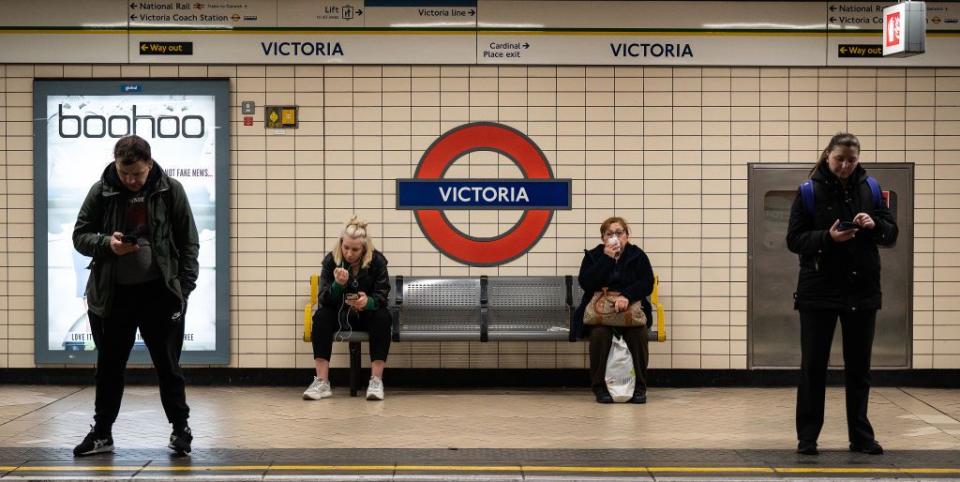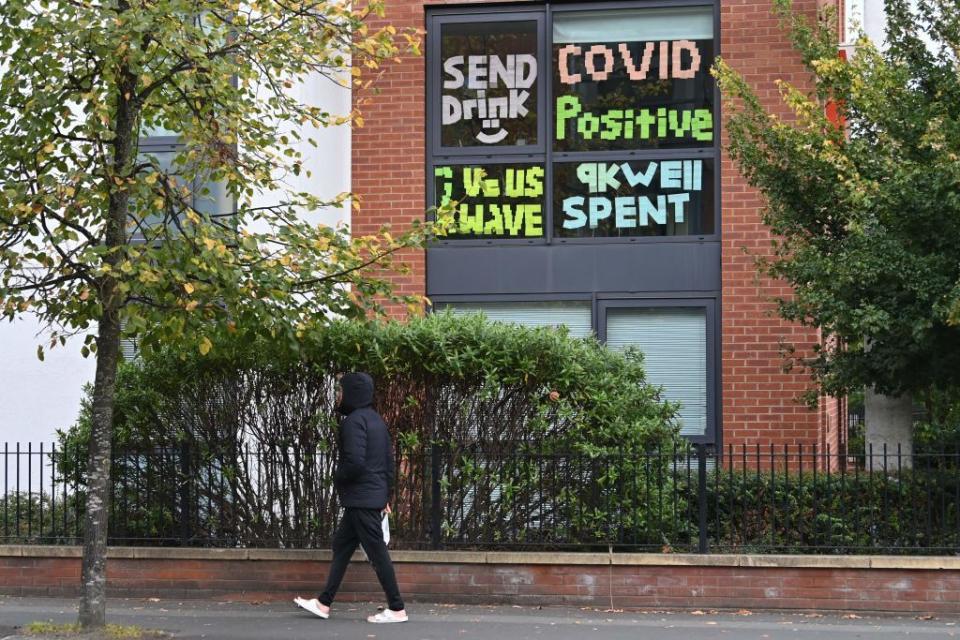Asperger's Always Made Me Isolated. Now Covid-19 Has Made Everyone Feel the Same Way

Wesley Emmott is a young journalism graduate. Having grown up with Asperger's, Wesley views the world from a unique perspective that informs his writing, on food and his experiences of growing up on the autistic spectrum. He's written scripts that have been performed in the Royal Court Theatre and works with schools helping young people with advice on coping strategies with anxiety. He also cooks with his mum, chef Eleainea Emmott, as part of their home supper club, ‘Our Seat Our Table’.
When Covid-19 initially hit in March, as shops closed and people started bulk buying in preparation for weeks spent indoors, I was still at university and swamped with coursework. Here, I already had a head-start on self-isolation, spending much of my time on my own.
This might have had something to do with not liking clubs or any other place with loud music and large crowds, which is a bit of a bummer for the university crowd. At first, I went to clubs on my own because no-one wanted me around, but soon stopped and just stayed in my flat. I was living in halls alongside people who were having an amazing time, but I wasn't part of the group. I struggled to make friends and felt isolated. Every evening was the same, weekdays and weekends: TV and making a meal. I got really down when other first-year students left, but I was still in halls in second and third year. Each year I saw new groups of happy freshers getting pissed together, and felt the same loneliness.
Communication, adjusting and feeling isolated are all things I’ve struggled with. Now, though, due to the pandemic, everyone feels like that. So, thanks, coronavirus? You’ve taken millions of lives, and came for about half my personality, too.
At the start of the first lockdown, people found ways to occupy their spare time like baking and gardening (the latter my mum took to especially). But the end to the pandemic still unclear, many still find it difficult to cope. We can still connect on social media, but there is a disconnect there between what people post, and what they're actually feeling. People share the good times, so there is a lot fake happiness, which ironically only creates more unhappiness as people worry about why their own real lives don't measure up.

Especially now, we can’t and shouldn’t just talk about the good times. World Mental Health Day was last month, but it’s something we need to keep in account all year round, especially now. Because I have Asperger’s Syndrome, I find communication difficult, so I have to try harder to convey the meaning I’m trying to get across. I find this really important as it is difficult to get my meaning across quickly and people don’t have the patience to stop and listen.
Listening to others, and being listened to, are what people need to be more comfortable with, and I think people don’t do it because they’re worried that they sound like they’re just moaning or taking too long to explain what they really feel. Perhaps lockdown and Covid-19 has given us more empathy. I certainly hope so.
What’s worked for me during lockdown is doing things that either provide you with a calm space, or that you can completely immerse yourself in. Creating either a written or video diary can help you organise your thoughts. Emotions are abstract, so writing it down may not be for everyone, but drawing is also an option. Many people post their writing and drawings online, so you don’t have to do it professionally to get something out of it.
Chances are you haven’t been able to go back to your old routine for six months, and you won’t be able to go back to them for another six months at the earliest. So what can you do to occupy your time and build a stable routine that will see you through what for many will be a rough Christmas, and an ever rougher January? Writing, drawing or making videos are things that can easily be done at home, and in spite of what you might see online don’t require elaborate setups. Do it for yourself, rather than worrying whether it measures up to others. People need to learn to be satisfied with themselves, because just the act of even trying to do these things is beneficial and good for your mental health.
I’m not perfect at these things either. I can’t say I’m 100 per cent satisfied with myself, nor do I have all the answers, but I also know that I need to keep going and keep learning how to navigate. I still take my time going outside, but I do it more than I used to and I can at least say that I’m growing as a person trying to establish a routine, however small. Because being satisfied with yourself doesn’t mean never changing.
Things are going to keep fluctuating and we just have to keep adapting. In a time where isolation is most people’s new norm, what’s most important is reaching out to others (metaphorically of course) through WhatsApp, or just calling people back. I’ve started to send voice messages instead of text messages because it's nice to hear someone’s voice at the end of the phone. Having a support group of friends and family helps greatly. For me, it’s my family and members of the Autism Society who I managed to meet in Uni. Even though we aren’t great at communication, when we do, it's to lift each other up as we know we all struggle. My loneliness isn’t unique anymore – everyone is going through different degrees of isolation. But it's made me happier knowing that more people are acknowledging it, and seeking help in different ways by expressing that they are not OK, and that that really is OK.
Like this article? Sign up to our newsletter to get more delivered straight to your inbox.
Need some positivity right now? Subscribe to Esquire now for a hit of style, fitness, culture and advice from the experts
You Might Also Like

 Yahoo Finance
Yahoo Finance 